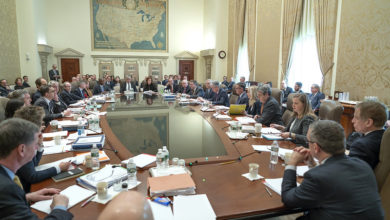Almost no other profession is as thoroughly scrutinized as teaching. Everyone thinks they can do it and everyone has an opinion about how it should be done. And if we didn’t live under capitalism I might even consider that to be true. Children are curious and generally motivated to learn. Teachers facilitate that learning. But teachers under capitalism do other things too. For example, I ask myself these ridiculous questions frequently.
1. To Pee or Not to Pee?
That really is a question. I recently read an article that said teachers and crane operators use the restroom less frequently than other professions. Unlike crane operators, teachers are not trapped in a small room hovering above the earth. So why don’t they just go when nature calls?
Contrary to popular belief, teachers don’t just walk in, teach a few lessons and walk out of the school building. Before or after school, during prep and professional development periods, and during lunch, teachers have meetings and other paperwork to do. I’ve heard that in some
schools, similarly to other professions, the turnaround time on some paperwork can be as soon as a few hours. If you are also expected to teach, you can only do this paperwork on what is considered “free” time. Similarly to other professions, being late to meetings or turning in late paperwork can mean demerits on evaluations.
2. Should I sleep or lesson plan?
So now you know that teachers are pretty busy during the school day. As a teacher of young children, I spend over an hour before the children get to school, preparing materials and the activities that we will use that day. I spend all day teaching, going to meetings, and doing paperwork. When the children leave at the end of the day, I spend time cleaning up the classroom, checking homework and classwork, regrouping students, and planning with the other teachers on my grade. So when am I supposed to actually plan my lessons? When I get home.
Learning new curricula, researching activities, preparing materials, and preparing multisensory lessons takes time. What that means is that at least a few times a week I’m deciding between planning lessons and doing things that effect my health. Do I want to sleep or lesson plan? Do I want to exercise or lesson plan? Do I want to cook dinner or order in and lesson plan?
With more experience might this be alleviated? It could be. However, under capitalism, school systems are constantly looking to the newest research to get higher test scores. That means that even with experience its entirely possible to be learning new curricula every few years.
3. Do I want to go in early or stay late?
See questions 1 and 2 above. In NYC where I teach, our clocked hours start when the students arrive and typically ends when they leave. As I wrote above, that’s not really sufficient to do all that is expected of teachers. For me, the answer is always both. I both have to go in early and stay late in order to finish my work.
4. How many tasks can I complete on my lunch break?
See above. Too much to do, not enough time.
5. Should I call NYPD or allow this child to hit me?
Often, those are the only two options. Since school budgets are being cut, so are guidance counselors, psychologists, and school aides. So when a student has a meltdown or is ill-equipped to manage their emotions, there are often few people that can be called for assistance. If a child is being violent, or is putting themselves or others at risk, the choice teachers have to ask themselves is, do I try to handle this alone while managing the rest of the class, or do I call school safety, a division of the NYPD.
6. Do I use my knowledge of child development or follow the curriculum?
In many states, a Masters degree is required to keep your teaching certification. Its required because it only makes sense that teachers should know something about child development, teaching and learning. So yes, we do know something about what we’re doing yet our collective intelligence is constantly undermined. Many school districts will simultaneously tell teachers to follow the provided and required curricula and alter it based on the needs of our students. Sometimes what is called for by curricula and what is developmentally appropriate is contradictory and requires teachers to make the choice between the two.
7. Do I spend my own money to buy paper or not give homework this week?
As school budgets are cut across the country, teachers are spending more of their own money on supplies. In the 2012-2013 school year, public school teachers spent $3.2 billion on school supplies. This is the same amount that the U.S. gives in aid to Israel annually. Approximately $1.6 billion is paid for out of pocket by teachers, approximately $500 each. So when supplies run out in the classroom, teachers often have to make choices between changing or removing a learning opportunity that would require those supplies, or funding it themselves.







